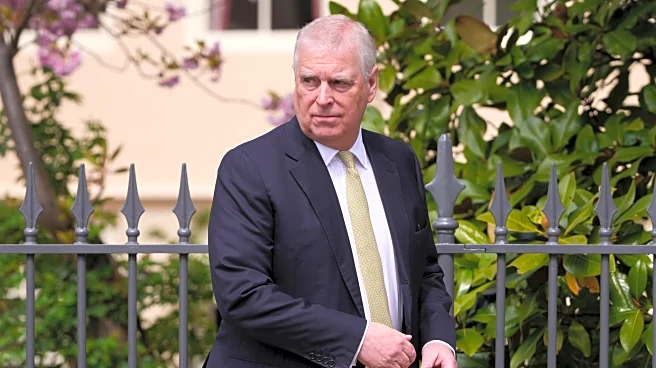Rapid Read • 8 min read
The 119th Congress has experienced a series of unusual and unprecedented events, marked by extended voting sessions and heightened partisan tensions. Notably, the House of Representatives set a record for the longest vote in its history, lasting over seven hours while deliberating President Trump's significant legislative proposal. This extended session required continuous supervision, with Representative Steve Womack presiding over the chamber for the duration. Concurrently, the Senate engaged in a 'vote-a-rama,' a marathon series of votes on amendments to budget bills, surpassing previous records set in 2008. These extended sessions reflect the increasingly combative and chaotic atmosphere within Congress, as lawmakers navigate complex legislative challenges and partisan divides.
AD
The extended sessions and heightened tensions in Congress have significant implications for U.S. governance and public policy. The prolonged voting periods and marathon sessions indicate a legislative body grappling with deep-seated partisan divisions, which can impede the passage of critical legislation. This environment may affect the efficiency and effectiveness of Congress in addressing pressing national issues, such as budgetary concerns and policy reforms. The ongoing partisan struggles could lead to delays in legislative processes, impacting stakeholders across various sectors, including economic, social, and political spheres. As Congress continues to face these challenges, the ability to reach consensus and enact meaningful legislation remains a critical concern.
Looking ahead, Congress is set to reconvene in September, facing a looming deadline to keep the government funded. This period is expected to be marked by intense debates and negotiations, particularly concerning budgetary allocations and policy priorities. Additionally, ongoing discussions around high-profile issues, such as the case files related to Jeffrey Epstein, are likely to continue, further contributing to the contentious atmosphere. As lawmakers return to Washington, the focus will be on navigating these challenges and working towards solutions that can bridge partisan divides and ensure effective governance.
The current situation in Congress highlights broader ethical and cultural dimensions, including the need for transparency and accountability in legislative processes. The extended sessions and partisan tensions underscore the importance of fostering a collaborative environment that prioritizes the public interest over political gains. This period may also prompt discussions about the role of Congress in addressing systemic issues and the need for reforms that enhance its functionality and responsiveness to national needs.
AD
More Stories You Might Enjoy












